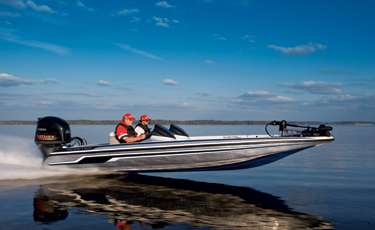
"We've met the enemy, and he is us."
That's what former Federation Nation Director Don Corkran used to tell his clubs about public criticism fostered upon them.
He's right. Despite all the good that competitive bass fishing has brought to fishing over the years, bad boating etiquette often is what people remember most.
Social problems abound on our nation's waterways due to increased usage by a growing number of water recreationists and the popularity of bass tournaments. And, as much as we can rightly fault inconsiderate pleasure boaters for many of the problems, fishermen deserve their share of the blame.
"I think the problems are few, but I'm afraid those few exist in nearly every tournament," Corkran said. "We've blackened our own eyes, and now we must apply the dressing. We have to go out of our way to be more courteous to other boaters and anglers."
That means slowing down to no-wake speeds or giving a wide berth to other anglers who are fishing nearby. It also means respecting another angler's fishing area and not roaring in on top of him.
Today's high performance rigs are essential for today's angler, but there is a time and place to put that power to use. Boaters who zoom through narrow creeks or canals being fished by panfishermen will draw their ire and rightly so. Yes, it costs fishing time to slow down, but wash a johnboater onto shore or leave a frightened family clutching to the sides of their boat, and you've added more enemies to the list.
Lake property owners are watching you, too. Approach their docks carefully, and after fishing there, idle away from shore before putting the hammer down. Remember: you are responsible for any damage caused by your wake.
Crowded lakes have made it more difficult for an angler to find fishable water away from the crowd. Yet too many anglers are discourteous, particularly some of the younger anglers who are newcomers to the sport.
"It seems that the younger generation hasn't been taught the ethics that were beaten into our heads as youngsters," a veteran tournament angler once told me. "I would never go into a small pocket being fished by another angler, yet people do it all the time."
Communication can solve a lot of problems, says Michigan pro Kevin VanDam. Arguments often erupt when a fisherman crowds another who is catching fish or when an angler cuts in front of someone who is fishing a bank or structure.
"You can avoid a confrontation on crowded waters by simply discussing your intentions and trying to work out a compromise with other anglers," he says. "If you're getting crowded, politely explain what you're fishing and ask that he respect your water."
A tournament does not give a competitor first rights to a non-competitors' hot spot, nor should you ask a recreational angler to leave the spot because you're fishing for money.
The bottom line to good bass boat etiquette is a simple matter of treating others the way you want to be treated.
Think about that the next time you launch.

